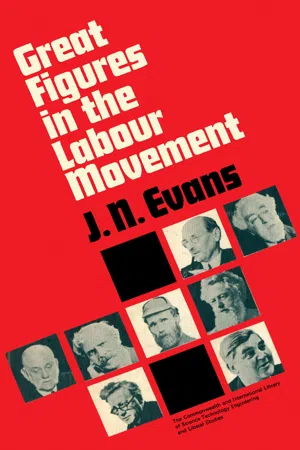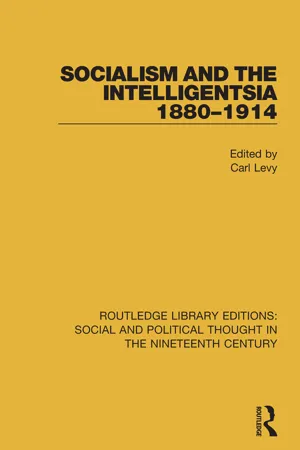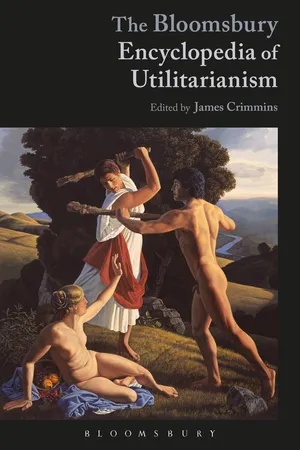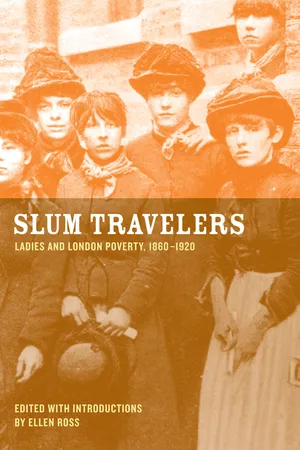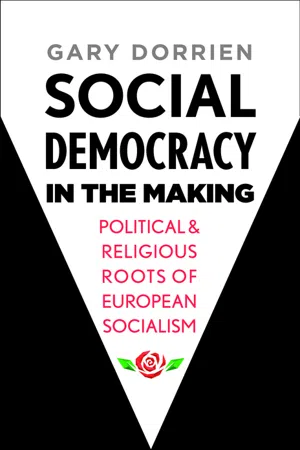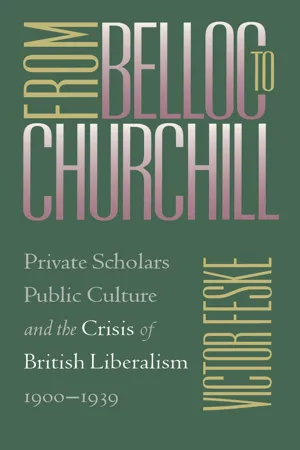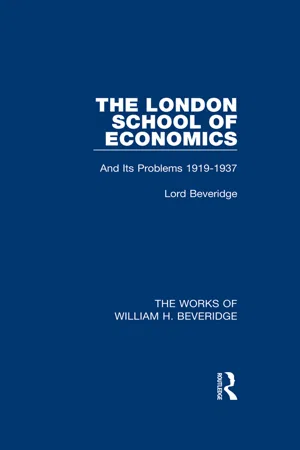Politics & International Relations
Beatrice Webb
Beatrice Webb was a British sociologist, economist, and social reformer who, along with her husband Sidney Webb, played a significant role in the founding of the London School of Economics and Political Science. She was a key figure in the development of the British welfare state and is known for her influential work on poverty, labor conditions, and social policy.
Written by Perlego with AI-assistance
Related key terms
1 of 5
10 Key excerpts on "Beatrice Webb"
- eBook - PDF
Great Figures in the Labour Movement
The Commonwealth and International Library: History Division
- J. N. Evans, G. M. D. Howat(Authors)
- 2013(Publication Date)
- Pergamon(Publisher)
CHAPTER 5 Beatrice and Sydney Webb, 1858-1943 and 1859-1947 One and one, placed in a sufficiently integrated relationship make not 2 but 11. SYDNEY WEBB when proposing to BEATRICE IN THE whole history of Britain there has never been a married partnership which had such an influence on events as that of the Webbs. This couple of professional brain workers, as they called themselves, devoted their whole lives to a scientific study and analysis of all aspects of social organization; their impact upon the theory and practice of politics was tremendous—they were to turn the art of government into a science. One always thinks of The Webbs as a couple, as indeed they did themselves, for each one would always say We think . .., and Beatrice always referred to Sydney as The Other One. Nevertheless, until their marriage their paths were far apart, hers being that of a childhood and youth in an English stately home, whilst Sydney was the typical product of London's middle-class streets. Beatrice Potter was born on 2 January 1858, at Standish House, near Gloucester, one of nine daughters of a rich merchant active in ruling class circles. She grew up in an aristocratic atmo-sphere, in a household that regarded capitalism and laissez-faire as the natural and desirable order. The family knew many of the leaders in government circles and Beatrice was friendly with leading politicians and thinkers, especially Herbert Spencer, the Liberal economist, who was later to ask her to marry him. Beatrice was 62 BEATRICE AND SYDNEY WEBB, 1858-1943/1859-1947 63 passionately fond of reading and arguing ; in fact she developed the habit of arguing with herself, mostly on paper, and it was this dialectical method that was to develop her capacity for abstracting the important elements of any problem. - Various Authors, Various(Authors)
- 2022(Publication Date)
- Taylor & Francis(Publisher)
It was considerations of this kind which led to the formation of one of the most bizarre dining clubs in modern British history: the Co-efficients. 47 Here Sidney tried to cement an alliance between imperialism and social reform, 62 Sidney and Beatrice Webb consorting with a future Foreign Secretary (Grey) and a future Secretary of State for War (Haldane). Imperialism was further reinforced by the presence of present and future directors of the London School of Economics. Bertrand Russell and H. G. Wells represented philosophy and popular education, but neither of them had any clear idea of what Sidney was up to. It all ended badly for the Webbs. The political and social forces upon which they had come to rely were all but destroyed by a great Liberal victory in the general election of 1906. The 'little Englanders', whom they had dismissed as behind the times, seemed to be back in the saddle. The nonconformists who had been outraged by the Education Act, which the Webbs had helped to shape, seemed to be restored to their old power. The Labour Party, which they had tended to ignore, had made great gains. Ironically, this last great Liberal government in British history was destined - thanks to the efforts of Winston Churchill and Lloyd George - to lay the foundations of the Welfare State. 48 It embarked on a great programme of social reform, which owed much to the Webbs by way of general inspiration and through an altered climate of opinion, but which resolutely refused to accept them for its friends and advisers. Cabinet ministers like John Burns and Winston Chur- chill took a peculiar pleasure in not following any advice which came from 41 Grosvenor Road - the London home of the Webbs and the celebrated salon where Beatrice tried to bewitch the great and the powerful with her wit, learning and charm. Beatrice had, however, established one strong vantage-point for herself.- eBook - ePub
Women in European Academies
From Patronae Scientiarum to Path-Breakers
- Ute Frevert, Ernst Osterkamp, Günter Stock, Ute Frevert, Ernst Osterkamp, Günter Stock(Authors)
- 2020(Publication Date)
- De Gruyter Akademie Forschung(Publisher)
Beatrice grew up, unusually influenced by her father, to believe that women were equal to men and was aware of no disadvantage arising from her gender. When she anticipated it, as in her appointment to the male dominated Royal Commission on the Poor Laws, she challenged it fiercely. She was unsympathetic to what she conceived as the narrow focus of the feminist movement and did not see the national vote as the key to resolving the most serious social problems. The extent to which she owed her prominence in British public life to her collaboration with her husband is hard to evaluate, but she certainly had recognition in her lifetime and still retains a prominence unusual among women, far outstripping the three women who succeeded her as FBAs who were all among the earliest female Professors but are now forgotten outside their fields, unlike Beatrice Webb.Bibliography
British Academy Archive, Certificate Nominating Persons for Election as Fellows, January 1931: Beatrice Webb.Caine, Barbara. Destined to be Wives. The Sisters of Beatrice Webb. Oxford: Oxford University Press, 1988. →Cole, Margaret (ed). Diaries of Beatrice Webb, 1924 – 1932. London: Longman, Green and Co, 1956. →Dyhouse, Carol. No Distinction of Sex? Women in British Universities, 1870 – 1939. London: UCL Press, 1995. →Hollis, Patricia. Ladies Elect. Women in English Local Government, 1865 – 1914. Cambridge University Press, 1987. →MacKenzie, Norman and Jeanne (eds). The Diary of Beatrice Webb. 4 Vols, Vol 1: 1873 – 1892, 1982; Vol. 2: 1892 – 1905, 1983; Vol. 3: 1905 – 1924, 1984; Vol. 4: 1924 – 1943, 1985. London: Virago in association with the London School of Economics.Potter, Beatrice. “The Dock Life of East London”. Nineteenth Century (October, 1887). Reprinted as “The Docks” in Charles Booth. Life and Labour of the People of London. Poverty series, Vol. 4. London: Macmillan, 1902. 12 – 86. a , bPotter, Beatrice. “East London Labour”. Nineteenth Century (August 1888). Reprinted as “The Tailoring Trade” in Charles Booth. Life and Labour… Vol. 4. 37 – 66.Potter, Beatrice. “The Jewish Community” in Charles Booth. Life and Labour… Vol. 3. 166 – 92. Reprinted as “The Jews of East London” in Sidney and Beatrice Webb. Problems of Modern Industry. - eBook - ePub
- Carl Levy(Author)
- 2016(Publication Date)
- Routledge(Publisher)
17 He was not exactly respectable; but he was respected. He was not a dangerous revolutionary, but he was arguably the most dangerous socialist in England.Enter Beatrice
Beatrice Potter was, at the time of their first meeting, neither a socialist nor dangerous.18 She was born in Gloucestershire in 1858, the eighth daughter of a great railway magnate. It is tempting to see in her family history the mirror of the history of a whole class. Her grandfathers had been energetic and intelligent men who made their fortunes in textiles. They had been dissenters in religion and Radicals in politics. They had been for the first Reform Act, but opposed to Chartism. They had been against the corn laws but in favour of the severities of the New Poor Law.Beatrice's father, Richard, had been inclined to exchange the North of England for the South: the hard life of action in business and politics for the leisurely pursuits of a gentleman. The financial crisis of 1847 and the revolutions of 1848 destroyed his independence, but he was cushioned against complete disaster by the network of social ties that grew up among those who had been rich long enough for them no longer to count as parvenus. Richard was helped into the timber trade in Gloucester and then went on into railways. By the time Beatrice was born, his capital was so great that he was virtually beyond the reach of commercial crises. His family lived in the highest style in London or else occupied one of their three immense houses scattered about different parts of the country. Dissent was soon exchanged for Anglicanism. In 1867 the Potters broke with Radicalism and became identified with the Tories. However, the household remained open-minded and cultivated. Beatrice's father encouraged her to read whatever books she liked without restriction of any kind. Her mother spoke most European languages and tried her hand at writing a serious novel. - James E. Crimmins(Author)
- 2017(Publication Date)
- Bloomsbury Academic(Publisher)
Fragmentary as these observations were, they suggest that Beatrice had much in common with the “new utilitarianism” expounded shortly after-wards by J. A. Hobson (Weinstein, 2007). Influenced in part by guild socialism, Bea-trice introduced into the Webbs’s writings an almost lyrical note regarding fellowship, the development of human faculty, and the “free life of the spirit” (Morgan, p. 114). As important as any philosophical bor-rowings, the Fabian strategy of permeation FABIAN SOCIALISM 160 drew on the utilitarians’ example of the application of political intelligence to the achievement of rational social goals. It was in this sense—that of a wider intellectual permeation by those possessed of a “body of systematic political thought”—that Sidney Webb described the socialists as the Bentham-ites of their time (Webb, 1894, p. 6). Though he did not fully elaborate it until he had bro-ken away from Fabianism, Wallas (1926), too, was to salute Bentham as Britain’s greatest political inventor, whose qualities of legal, political, and administrative ingenuity, whether or not informed by the principle of utility, survived as his most enduring legacy. With its commitment to disinterested social research, the Webbs’ foundation of the Lon-don School of Economics could certainly be regarded as a Chrestomathic enterprise in the spirit of utilitarianism. Here too, how-ever, there were tensions; for while Sidney’s Benthamite instincts lent themselves to a lim-ited view of democracy as “foolometer” for the expert, Beatrice also affirmed its positive value through the general enlargement of personality, faculty, responsibility, and desire (Morgan, p. 104). Few in number but seemingly ubiquitous, the Fabians’ eschewal of a party form of organization was itself suggestive of their affinity with the philosophic radicals.- eBook - PDF
Slum Travelers
Ladies and London Poverty, 1860-1920
- Ellen Ross(Author)
- 2007(Publication Date)
- University of California Press(Publisher)
In recent decades, however, scholars have found Beatrice the more interesting partner in large part because of her detailed and self-aware diaries, kept from before the age of fi fteen until just eleven days before her death, and which she began to edit and organize for publication as an autobiography in 1922. The diaries cover everything in her life from her worries about a wayward younger sister, to her painful decision not to marry suitor Joseph Chamberlain, to her hopes for the Bolshevik regime in Russia. Her hus-band, she says, was uneasy about this form of personal writing, saying it was “far too subjective”; some sections seemed to him “the sentimental scrib-bling of a woman.” But Beatrice deeply enjoyed working on My Apprenticeship, the fi rst volume of which was completed in the fall of 1925. The book was an immediate critical success. She viewed it as a piece of cre-ative writing and in any case consoled herself that no matter what, it would “have some value [emphasis hers] as a description of ‘Victorianism.’” 8 Beatrice Webb was a skilled administrator and forceful exponent of her causes. She masterminded the in fl uential Minority Report of the (1905– 1909) Royal Commission on the Poor Laws; Helen Bosanquet was part of the far larger majority. Both Webbs crowed triumphantly when, in 1929, the Conservative Minister of Health Neville Chamberlain accepted one of their central 1909 recommendations, the abolition of poor law boards of guardians. 9 Despite her deep depression about World War I, she served on several important wartime government boards, including one whose man-date was a reorganization of the structure of the central government, with its departments and ministries. She was the only woman to serve on the committee that formulated rules governing wartime production, when hundreds of thousands of union men were replaced by women, girls, and boys. Here Webb proved herself a staunch defender of the rights of women workers. - eBook - PDF
Social Democracy in the Making
Political and Religious Roots of European Socialism
- Gary Dorrien(Author)
- 2019(Publication Date)
- Yale University Press(Publisher)
He became a riveting orator for the Fabians before he was famous and remained British Origins 76 one afterward. Sidney Webb’s path was more conventional, via academic achievement. Born in London in 1859 , his mother was a hairdresser and his father collected rent and debt for merchants. Webb’s parents hoped a good education would secure a career for him as a commercial clerk. He studied at the University of London and King’s College London, became a barrister in 1885 , and taught political economy at City of London College. He waxed ideal-istic about educational opportunity for the rest of his life. Webb and Shaw were both getting started when they joined the Fabian Society in 1884 , three months after its founding. In 1890 Beatrice Potter met with Webb to ask him about trade unionism. He fell in love with her at their first meeting. She pleaded for friend-ship only, still recovering from Joseph Chamberlain. Webb was undeterred, wearing down her resistance, promising a mutually fulfilling partnership. They married in 1892 , and three years later cofounded the London School of Economics with a bequest left to the Fabian Society. 85 Their union was tremendously productive. Sidney and Beatrice Webb took pride in being sensible, balanced, industrious, middle class, and empirical, serving a colossal cause—a new civilization—through Sidney Webb’s organiza-tional achievement, the Fabian Society. It sponsored over seven hundred lec-tures in 1889 alone, when Shaw assembled a Fabian reader featuring chapters by himself, Sidney Webb, William Clarke, Sydney Olivier, Graham Wallas, Annie Besant, and Hubert Bland. - eBook - ePub
From Belloc to Churchill
Private Scholars, Public Culture, and the Crisis of British Liberalism, 1900-1939
- Victor Feske(Author)
- 2000(Publication Date)
- The University of North Carolina Press(Publisher)
2 SIDNEY & BEATRICE WEEB
A New Form of Public HistorySidney Webb and Beatme Webb in the early 1900S, working on another one of their “babies.” (UPI/Bettmann Archive )Prior to her marriage, Beatrice Potter fretted over the likelihood that both she and her prospective husband, Sidney Webb, possessed “second-rate minds.”1 A decade later she remained troubled by her perception of their intellectual shortcomings, fearful lest they be remembered as “simply compilers and chroniclers” rather than original theorists.2 Such a blanket dismissal by posterity would obscure the ambitious scope of their writings, while perhaps threatening its sustained social and political influence.Paradoxically, the danger of neglect was greatest in the area where the couple lavished the most time and attention, historiography. Today the Webbs enjoy a reputation as Fabian Socialists, political activists, propagandists, social scientists, fellow travelers, and even as earthbound prophets,3 but, after the polymathic fashion of Hilaire Belloc, only secondarily are they recalled as historians. In his standard 1962 study of Fabian Socialism A. M. McBriar asserted that “it is in the realm of historiography and the descriptive analysis of political institutions that we discover the true greatness of the leading Fabians; in the works of the Webbs, of Graham Wallas, R. H. Tawney, R. C. K. Ensor, and G. D. H. Cole is to be found some of the finest history written since 1890.”4 But as if to gainsay his own declaration of the preeminent significance of Fabian historiography, McBriar virtually ignored the subject in favor of an examination of overt Fabian political machinations. Equally distressing is the most recent dual biography of the Webbs, which treats their histories as an unproblematic adjunct to their other activities.5Yet the Webbs simply cannot be understood without taking account of their historical scholarship. The sheer scale of the couple’s historiographical output testifies to their own ordering of priorities and therefore demands careful attention. The 1920 edition of The History of Trade Unionism (first published in 1894) approaches eight hundred pages in length, and English Local Government from the Revolution to the Municipal Corporations Act - eBook - ePub
The London School of Economics (Works of William H. Beveridge)
And Its Problems 1919-1937
- William H. Beveridge(Author)
- 2014(Publication Date)
- Routledge(Publisher)
IX CENTENARY OF THE WEBBS DOI: 10.4324/9781315738161-9The Webb Achievement
SIDNEY WEBB was born on July 14, 1859, and died on October 13, 1947. Beatrice Potter, who became Mrs. Sidney Webb, was born on January 22, 1858, and died on April 30, 1943. But they decided very sensibly to have been born officially on the same day and celebrated their seventieth birthday together in 1929, when their portrait was put up in the Founders’ Room of the School of Economics. For me 1959 is the Centenary Year of Sidney and Beatrice Webb alike.To my mind they are among the dozen most important people of the past hundred years. I say this although I did not share their political opinions at any time; I shared their political opinions even less than before, when they passed from being Socialist to being Communist. But I was a friend of theirs for forty years, to the very end of their lives; I saw them at work for all those years; I had the delight of working with them often, above all for eighteen years in the London School of Economics and Political Science. That I believe is the greatest single contribution made to humanity by the Webbs and naturally in this lecture I give more time to it than to any other work of theirs. But it is one contribution only out of many that they made to humanity. The thing above all that should be emphasized about the Webbs in their Centenary Year is the breadth and quality and variety of their achievement.They are the inventors of the idea of a national minimum standard of life, to be guaranteed and enforced by the State, while leaving freedom and responsibility for the individual to manage his own affairs above that minimum. This idea, laid down by the Webbs in 1903, is the germ of the Beveridge Report of 1942. The fact that the Webbs did not like compulsory social insurance as a means of finding the necessary funds for the national minimum represents a difference of method rather than of principle. The fact that social insurance does not today provide enough to provide the necessary minimum, but has to be eked out by assistance under means test represents a more serious defect of social policy by inflation. I have to return to this problem of inflation before I end. - eBook - PDF
- Various(Author)
- 2021(Publication Date)
- Routledge(Publisher)
G 97 IX CENTENARY OF THE WEBBS THE WEBB ACHIEVEMENT SIDNEY WEBB was born on July 14, 1859, and died on October 13, 1947. Beatrice Potter, who became Mrs. Sidney Webb, was born on January22, 1858, and died on April 30, 1943. But they decided very sensibly to have been born officially on the same day and celebratedtheir seventieth birthday together in 1929, when their portrait was put up in the Founders' Room of the Schoolof Economics. For me 1959 is the Centenary Year of Sidney and BeatriceWebb alike. To my mind they are among the dozen most important people of the past hundred years.I say this althoughI did not share their political opinions at any time; I shared their political opinions even less than before, when they passed from being Socialist to being Communist.But I was a friend of theirs for forty years, to the very end of their lives; I saw them at work for all those years; I had the delight of working with them often, above all for eighteen years in the London School of Economics and Political Science. That I believe is the greatestsingle contribution made to humanity by the Webbs and naturallyin this lectureI give more time to it than to any other work of theirs. But it is one contribution only out of many that they made to humanity. The thing above all that should be emphasized about the Webbs in their CentenaryYear is the breadth and quality and variety of their achievement. They are the inventorsof the idea of a national minimum standard of life, to be guaranteed and enforcedby the State, while leaving freedomand responsibility for the individual to manage his own affairs above that minimum. This idea, laid down by the Webbs in 1903, is the germ of the Beveridge Report of 1942. The fact that the Webbs did not like 9 8 CENTENARY OF THE VVEBBS compulsory socialinsurance as a means of finding thenecessary funds for the national minimum represents a difference of method rather thanof principle.
Index pages curate the most relevant extracts from our library of academic textbooks. They’ve been created using an in-house natural language model (NLM), each adding context and meaning to key research topics.
